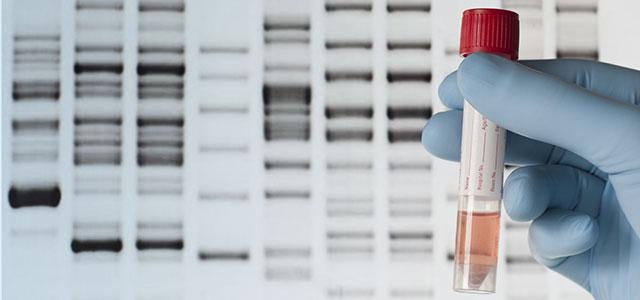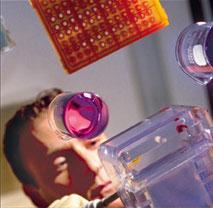
Epigenetics Is New Frontier in Pain Research
As scientists begin to better understand the effects of gene mutations at the molecular level, the potential for better and more targeted therapies for a wide range of conditions increases.
“That’s the big hope for epigenetics,” says UC San Francisco School of Nursing geneticist Bradley Aouizerat of the scientific discipline that examines how environment can change how a gene functions or expresses itself.
Increasing Understanding
Today, scientists and clinicians are aware of many genetic mutations that put people at greater risk for certain conditions. But epigenetics could, potentially, offer people more than awareness of risk. The theory behind the science, says Aouizerat, is that if genes are exposed to a certain environment for a sustained period of time, they take a chemical shortcut to turn the thermostat on a certain gene expression either up or down, resulting in increases or decreases in protein levels.
“If that’s correct, a gene mutation changes from being a risk marker to something we might be able to modify,” he adds.
His recent work on the epigenetics of pain gives him reason to believe that will be the case.
 Bradley Aouizerat In an as yet unpublished paper, he and his colleagues have identified an epigenetic change associated with persistent pain after breast cancer surgery. “We’ve collected evidence that methylation [a biochemical process that alters the expression of genes in cells as they divide] occurs in at least one gene associated with mild, persistent pain; this suggests the gene is undergoing adaptive fine-tuning,” says Aouizerat.
Bradley Aouizerat In an as yet unpublished paper, he and his colleagues have identified an epigenetic change associated with persistent pain after breast cancer surgery. “We’ve collected evidence that methylation [a biochemical process that alters the expression of genes in cells as they divide] occurs in at least one gene associated with mild, persistent pain; this suggests the gene is undergoing adaptive fine-tuning,” says Aouizerat.
In a separate study examining the factors that contribute to neuropathic pain in response to chemotherapy, the research group led by Aouizerat’s frequent collaborator and pain expert Christine Miaskowski is pilot testing an intervention and Aouizerat is repeatedly drawing blood to examine how epigenetic changes affect the immune cells and thereby infer the effect of those changes on neurons associated with the neuropathic pain.
Miaskowski believes this is an important new frontier in pain research. “There’s nothing on epigenetics in the literature on pain,” she says. “It’s really another and exciting element in precision medicine that we hope will offer many suffering patients new hope.”



